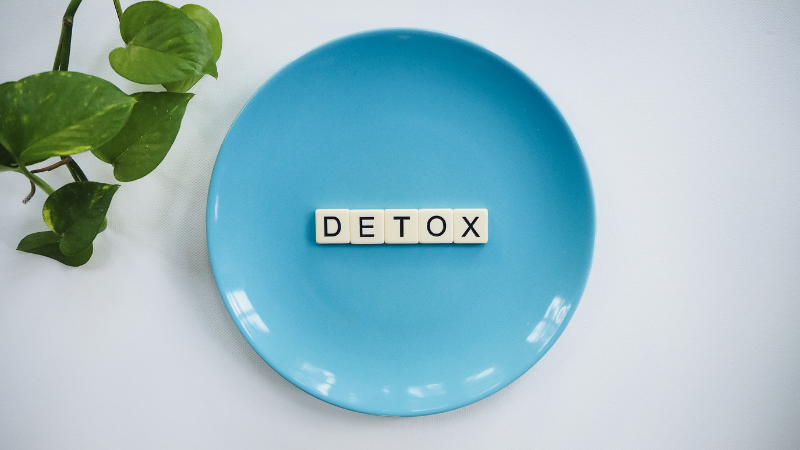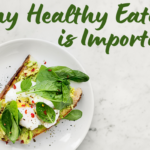Does Your Body Detox When You Start Eating Healthy
Does Your Body Detox When You Start Eating Healthy? Learn how a nutrient-rich diet aids natural detox, supports organs, and boosts overall well-being.

Introduction
Hook: Have you ever been tempted by the allure of a detox diet promising rapid transformations in just a few days?
Introduction to detoxification: Detoxification is a buzzword that has permeated the wellness world, with many people seeking quick fixes to cleanse their bodies of impurities. From juice cleanses to extreme fasting regimens, these trends promise rapid detoxification and renewed vitality. But what’s the science behind it, and how does healthy eating fit into the detox equation?
Primary question: In this comprehensive exploration, we will navigate the fascinating world of detoxification, revealing the intricate interplay between what you consume and how your body rids itself of toxins. We’ll journey through the natural processes that occur within your body, examining how they respond to a diet rich in nutrient-dense foods.
So, buckle up for a journey through the remarkable world of detoxification, where we’ll unravel the mysteries of how your body copes with the modern world’s toxic onslaught and discover the role of healthy eating in this intricate dance of renewal and vitality.
Understanding Detoxification
In this section, we’ll dive deep into the intricate process of detoxification. Understanding detoxification is essential to appreciate the role of healthy eating in supporting this vital bodily function.
What Is Detoxification?
Detoxification, or detox for short, is a fundamental process within the human body that involves the removal or neutralization of harmful substances, known as toxins. Detoxification is the body’s natural defense mechanism, tirelessly working to safeguard your health. Its significance cannot be overstated, as it plays a pivotal role in maintaining your overall well-being.
The Body’s Natural Detoxification Process
Contrary to what some detox diets may claim, your body is continually detoxifying itself. This process primarily revolves around three key organs: the liver, kidneys, and colon.
- The Liver: Often referred to as the body’s primary detox organ, the liver plays a central role in processing and neutralizing toxins. It transforms harmful substances into less harmful compounds that can be easily excreted from the body.
- The Kidneys: These bean-shaped organs filter toxins and waste products from your bloodstream, eventually excreting them as urine. Proper hydration is crucial to support kidney function.
- The Colon: Part of the large intestine, the colon helps eliminate waste and toxins. A diet rich in fiber promotes regular bowel movements, preventing toxin buildup.
Common Misconceptions About Detoxing
There are several misconceptions surrounding detoxification, often perpetuated by fad diets and unverified health claims. It’s essential to debunk these myths to gain a clear understanding of the process:
- Myth 1: Rapid Detoxification: Some diets promise lightning-fast detox results. In reality, detox is an ongoing, gradual process, not an instant transformation.
- Myth 2: Extreme Cleanses: Extreme detox diets, such as juice cleanses or water fasts, can be counterproductive and even harmful. Sustainable, long-term changes are more effective.
- Myth 3: Dependency on Products: Detox products and supplements may not be as effective as they claim. Your body’s natural detoxification mechanisms are robust when supported by a balanced diet.
Toxins in Our Environment
Now that we’ve established what detoxification is, let’s explore the culprits—toxins in our environment—that necessitate this essential process.
Sources of Toxins in Our Environment
| Source | Description |
|---|---|
| Air Pollution | Industrial emissions, vehicle exhaust, indoor pollutants |
| Pesticides and Herbicides | Residues from agricultural chemicals in food |
| Heavy Metals | Contaminants in soil, water, certain foods |
| Food Additives | Artificial preservatives, colors, flavor enhancers in processed foods |
Toxins are pervasive and can be found in various aspects of our daily lives:
- Air Pollution: Industrial emissions, vehicle exhaust, and indoor pollutants release harmful toxins into the air we breathe. This constant exposure can impact respiratory health and more.
- Pesticides and Herbicides: Residues from agricultural chemicals can make their way into our food supply. This is why choosing organic produce is often recommended.
- Heavy Metals: Contaminants like lead, mercury, and arsenic can be present in soil, water, and certain foods, posing significant health risks when ingested or absorbed.
- Food Additives: Many processed foods contain artificial preservatives, colors, and flavor enhancers, which, when consumed in excess, can contribute to toxin buildup.
Note: Consider using tables and charts to visually represent the sources of toxins and their potential health impacts for enhanced clarity.
Impact of Environmental Toxins on Health
| Health Impact | Toxins |
|---|---|
| Respiratory Issues | Airborne pollutants, indoor toxins |
| Neurological Effects | Heavy metals like lead and mercury |
| Digestive Discomfort | Foods with additives |
| Cancer Risk | Prolonged exposure to certain environmental toxins |
Understanding how these toxins affect our health is crucial:
- Respiratory Issues: Airborne pollutants can irritate the respiratory system, leading to conditions like asthma and bronchitis.
- Neurological Effects: Exposure to heavy metals like lead and mercury has been linked to cognitive impairments and developmental issues, particularly in children.
- Digestive Discomfort: Consuming foods laden with additives can disrupt gut health, leading to digestive problems like bloating and discomfort.
- Cancer Risk: Prolonged exposure to certain environmental toxins may increase the risk of cancer and other chronic diseases.
In this section, we’ve delved into the core principles of detoxification and identified the toxins lurking in our environment. Armed with this knowledge, we’re better equipped to explore how adopting a healthy eating regimen can fortify our body’s natural detoxification processes.
Healthy Eating and Detoxification

In this section, we will delve into the crucial relationship between healthy eating and detoxification. You’ll discover how the foods you choose to consume play a pivotal role in supporting your body’s natural detox processes, along with the importance of proper hydration in this context.
The Role of Diet in Detoxification
When it comes to detoxification, your diet plays a central role. The foods you eat provide your body with the essential nutrients it needs to facilitate and optimize the detox process. Let’s explore the connection between diet and detoxification.
The Link Between Diet and Detoxification
Your body is equipped with remarkable detoxification mechanisms, primarily centered in the liver, kidneys, and colon. These organs work in harmony to neutralize and eliminate toxins. However, they rely heavily on the nutrients you obtain from your diet to function effectively.
Nutrients Fuel Detox Processes: Key vitamins, minerals, and antioxidants found in foods are like the fuel for your body’s detoxification engine. For instance, the B vitamins, especially B6, B9 (folate), and B12, are essential for liver detoxification processes. Antioxidants like vitamins C and E, as well as selenium, help protect your cells from oxidative damage during detoxification.
Supporting Liver Function: The liver is the primary detox organ. It transforms fat-soluble toxins into water-soluble compounds that can be excreted via urine or bile. Nutrients like sulfur-containing amino acids (methionine and cysteine), found in foods like eggs and garlic, support the liver’s ability to process toxins effectively.
Detox-Friendly Nutrients: Certain nutrients, such as glutathione, are crucial for detox. Glutathione is a potent antioxidant and detoxifier produced by your body, but it relies on nutrients like cysteine, found in foods like poultry and dairy, for synthesis.
The Importance of Nutrition in Detoxification
Eating a balanced, nutrient-dense diet is vital for maintaining the health and efficiency of your detoxification systems. Here’s how proper nutrition supports detox processes:
- Enhanced Toxin Elimination: Nutrients from your diet assist in the breakdown and elimination of toxins, preventing their buildup in your body.
- Cellular Protection: Antioxidants from fruits and vegetables shield your cells from damage caused by free radicals generated during detoxification.
- Liver Health: Foods rich in essential nutrients support optimal liver function, ensuring toxins are efficiently processed.
- Overall Well-Being: A well-nourished body is better equipped to handle the stress of modern life, including exposure to environmental toxins.
Now that we understand the fundamental role of nutrition in detoxification, let’s explore specific foods that naturally aid in the detox process.
Foods that Support Detox
Certain foods are celebrated for their natural detoxifying properties. Incorporating these items into your diet can provide a gentle yet effective boost to your body’s detoxification efforts.
Detox Friendly Foods
Here’s a list of foods that are renowned for their detox benefits:
- Leafy Greens: Spinach, kale, chard, and other leafy greens are rich in chlorophyll, which can help neutralize toxins and support liver function.
- Cruciferous Vegetables: Broccoli, cauliflower, Brussels sprouts, and cabbage contain compounds like glucosinolates that enhance liver detoxification.
- Berries: Blueberries, strawberries, and raspberries are packed with antioxidants, particularly vitamin C, which combats free radicals generated during detox.
- Turmeric: This golden spice contains curcumin, known for its potent anti-inflammatory properties and potential detox support.
- Garlic: Garlic not only adds flavor to dishes but also supports liver detoxification and has antimicrobial properties.
- Lemons: High in vitamin C, lemons can boost liver function and aid digestion. Starting your day with warm lemon water is a popular detox ritual.
- Beets: Beets contain compounds like betalains that support liver detoxification and help purify the blood.
- Avocado: Avocados provide healthy fats that support cell membranes and the absorption of fat-soluble toxins.
- Ginger: Ginger has anti-inflammatory properties and can assist with digestion, indirectly supporting detoxification.
- Artichokes: These fibrous vegetables promote healthy digestion and support the liver’s detox functions.
It’s important to note that while these foods offer valuable detox support, they should be part of a balanced diet. A diet rich in a variety of fruits, vegetables, whole grains, lean proteins, and healthy fats ensures you receive a wide spectrum of nutrients beneficial for detoxification.
Additionally, drinking water and staying well-hydrated is pivotal in assisting your body’s detox processes. Let’s delve into the role of hydration in detoxification.
Hydration and Detox

The Role of Proper Hydration
Hydration is an often-overlooked aspect of detoxification. Water is the body’s primary means of flushing out toxins and waste products. Adequate hydration supports the following detox-related functions:
- Dilution and Elimination: Water helps dilute toxins in the body, making them easier to eliminate through urine and sweat.
- Kidney Function: The kidneys rely on sufficient water to filter waste from the bloodstream and produce urine.
- Digestive Health: Hydration aids in maintaining regular bowel movements, preventing the buildup of toxins in the colon.
- Temperature Regulation: Water helps regulate body temperature, especially during detox-related processes that can increase heat production.
Practical Tips for Staying Well-Hydrated
To ensure you stay properly hydrated and support your body’s detoxification efforts, consider the following tips:
- Daily Water Intake: Aim to drink at least eight 8-ounce glasses of water per day, often referred to as the “8×8” rule.
- Herbal Teas: Herbal teas, such as chamomile or dandelion root tea, can contribute to your daily fluid intake while offering additional detox benefits.
- Infused Water: Add slices of lemon, cucumber, or berries to your water for added flavor and a refreshing twist.
- Monitor Urine Color: Your urine color is a good indicator of hydration. Pale yellow to light straw is generally a sign of adequate hydration.
- Set Hydration Goals: Establish daily hydration goals based on your activity level, climate, and individual needs.
Remember that individual hydration needs vary based on factors such as age, activity level, and climate. Listen to your body and adjust your fluid intake accordingly.
In summary, the role of healthy eating in detoxification is undeniably crucial. Nutrient-dense foods provide the essential building blocks for your body’s detox processes, while proper hydration ensures toxins are effectively flushed out. By incorporating detox-friendly foods and staying well-hydrated, you can actively support your body’s natural detoxification mechanisms and enhance your overall well-being.
Detox Myths vs. Reality
Detox diets have surged in popularity, promising quick fixes and a fresh start for your body. But as with many health trends, it’s crucial to separate the detox myths from the undeniable realities. In this section, we’ll dissect the detox diet hype and explore what you can genuinely expect when you transition to a healthier diet.
The Detox Diet Hype
Addressing Popular Detox Diet Trends
Detox diets come in various forms, from juice cleanses to extreme fasting regimens. Each has its unique promises and devotees. Here, we’ll address some of the most popular detox diet trends and explore what they claim to offer:
- Juice Cleanses: These diets involve consuming only fruit and vegetable juices for a specified period. Advocates claim they flush out toxins and boost energy.
- Colon Cleanses: Some detox regimens include colon cleansing procedures to remove built-up waste, claiming it enhances overall health.
- Fasting: Extended fasting, intermittent fasting, and water fasting have gained attention for their supposed detox benefits, including weight loss and toxin elimination.
- Teatoxes: Herbal teas marketed as detox teas claim to cleanse the digestive system, promote weight loss, and clear the skin.
Analyzing the Effectiveness and Potential Drawbacks
While detox diets may offer short-term benefits, it’s essential to consider their effectiveness and potential drawbacks:
Effectiveness:
- Short-Term Weight Loss: Detox diets often lead to rapid weight loss, primarily due to water loss and calorie restriction.
- Improved Digestion: Some individuals report better digestion and reduced bloating during detox diets, which may be due to the elimination of processed foods.
Drawbacks:
- Lack of Scientific Evidence: Many detox claims lack robust scientific backing. Research on detox diets is limited, and the long-term effects are not well understood.
- Muscle Loss: Rapid weight loss on detox diets can lead to muscle loss, not just fat loss.
- Nutrient Deficiency: Extreme detox diets may lack essential nutrients, potentially leading to deficiencies.
- Potential Health Risks: Fasting for extended periods or using laxatives can pose health risks, including electrolyte imbalances and gastrointestinal issues.
- Loss of Muscle Mass: Detox diets that involve inadequate protein intake can lead to muscle loss.
Realistic Expectations
What to Realistically Expect
When transitioning to a healthier diet, it’s crucial to set realistic expectations. Here’s what you can genuinely expect:
- Gradual Change: Detoxification is not an instant process. Your body continuously works to neutralize and eliminate toxins, but this happens over time.
- Improved Energy: With healthier eating habits, you’ll likely experience increased energy levels and reduced fatigue. However, this improvement occurs gradually, not overnight.
- Enhanced Digestion: A shift towards whole, unprocessed foods can lead to better digestion. You may notice reduced bloating, gas, and improved bowel movements.
- Long-Term Benefits: Instead of seeking rapid detox, focus on long-term health benefits. These include sustainable weight loss (if needed), improved mood, and overall well-being.
Debunking Common Misconceptions
Let’s debunk some prevalent misconceptions about rapid detoxification:
- Rapid Toxin Elimination: Detox diets promising to rid your body of years’ worth of toxins within days are misleading. Your body’s natural detox processes take time.
- Weight Loss = Detox: While detox diets can lead to weight loss, not all weight loss is detoxification. Much of the initial weight loss on detox diets is due to water loss and reduced calorie intake.
- One-Size-Fits-All: Detox diets rarely consider individual variations in health and dietary needs. What works for one person may not be suitable for another.
- Extreme Measures: Extreme detox measures, such as prolonged fasting or excessive use of laxatives, can be harmful and are not recommended without medical supervision.
In summary, detox diets may offer short-term benefits like rapid weight loss and improved digestion, but they often lack scientific support, pose potential health risks, and may not lead to long-lasting detoxification. Instead of quick fixes, prioritize gradual, sustainable changes to your diet for a healthier and more balanced life. Remember that your body’s natural detox processes are ongoing, and the key to well-being lies in consistent, healthy choices over time.
Signs of Your Body Detoxing

In your quest for a healthier lifestyle, it’s natural to wonder whether your body is responding positively to the changes you’re making. Understanding the signs of your body detoxing can provide reassurance and motivation. Let’s explore some of the key indicators that may signal your body’s detoxification process is in full swing.
Physical Indicators
When your body begins to detoxify, it often sends out several physical signals that can be noticeable and reassuring. These signs are like nature’s way of patting you on the back, letting you know that positive changes are underway.
Improved Skin
Healthy, Radiant Skin: One of the most visible signs of detoxification is improved skin health. You may notice that your complexion becomes clearer and more radiant. Blemishes, acne, and skin irritations can diminish as your body eliminates toxins. This happens because detoxifying foods often contain antioxidants and anti-inflammatory compounds that support skin health.
Reduced Skin Issues: Skin conditions such as eczema, psoriasis, and dermatitis may also show improvement. The removal of certain trigger foods and the addition of skin-nourishing nutrients can contribute to these positive changes.
Increased Energy
Sustained Vitality: As your body clears out toxins, you may experience increased energy levels. Detoxification helps optimize the function of your cells and organs, allowing for more efficient energy production. It’s like switching from low-grade fuel to high-octane energy for your body.
Reduced Fatigue: Many people report feeling less fatigued and more alert when they adopt a healthier diet. This can be especially noticeable in the afternoon when the post-lunch energy slump tends to occur. A nutrient-rich diet helps maintain steady blood sugar levels, preventing energy crashes.
Better Digestion
Improved Gut Health: A noticeable shift in digestion can be a clear sign of your body detoxing. You might experience reduced bloating, gas, and discomfort. This is often due to the inclusion of fiber-rich foods in your diet, which support healthy gut bacteria and regular bowel movements.
Weight Loss: For those with excess body fat, gradual and sustainable weight loss can be a positive physical indicator. A healthy diet encourages your body to shed excess weight naturally as it becomes more efficient in processing and utilizing nutrients.
Emotional and Mental Changes
Detoxification doesn’t only manifest in physical changes; it can significantly impact your mental and emotional well-being as well.
Mood Enhancement
Stable and Positive Mood: One of the surprising emotional benefits of detoxification is a more stable and positive mood. When you nourish your body with wholesome foods, it responds by producing neurotransmitters like serotonin, often referred to as the “feel-good” hormone. This can result in a more balanced emotional state, reducing mood swings and irritability.
Stress Reduction: Detoxifying foods are rich in nutrients that support stress management. For example, magnesium, found in leafy greens and nuts, can help relax muscles and calm the nervous system. As stress levels decrease, you may find yourself better equipped to handle life’s challenges.
Mental Clarity
Sharper Cognitive Function: Many individuals report improved mental clarity and focus when they switch to a healthier diet. This can be attributed to various factors, including reduced inflammation in the brain, increased blood flow, and the intake of brain-boosting nutrients like omega-3 fatty acids from sources like fatty fish and flaxseeds.
Enhanced Productivity: With improved mental clarity, you may find that you’re more productive and efficient in your daily tasks. You can tackle challenges with a clearer mind and better concentration.
Anecdotal Evidence
Detoxification experiences are highly personal, and anecdotal evidence often reflects the unique nature of these changes. Individuals who have embraced healthier eating habits frequently share their stories of transformation.
Sarah’s Story: Sarah, a busy professional, decided to prioritize her health by adopting a nutrient-rich diet. She noticed that after a few weeks, her energy levels soared. She no longer experienced the mid-afternoon slump and found herself more focused and alert during work meetings. Her friends and colleagues even commented on her glowing skin.
John’s Journey: John struggled with occasional mood swings and anxiety. He decided to cut back on processed foods and incorporated more fruits and vegetables into his diet. Over time, he felt a remarkable shift in his mood. He described feeling calmer and more resilient in stressful situations.
In conclusion, signs of your body detoxing can manifest both physically and emotionally. Improved skin, increased energy, better digestion, mood enhancement, and mental clarity are some of the positive changes you may notice as you embrace a healthier way of eating. While individual experiences may vary, these signs collectively indicate that your body is responding positively to the nourishment you provide, setting you on the path to improved well-being.
How Long Does Detoxification Take?
Detoxification is a fascinating and ongoing process within your body, but it’s important to understand that it’s not a quick fix or a one-time event. The duration of detoxification varies from person to person due to several factors, making it a lifelong commitment to maintaining a healthier lifestyle. In this section, we’ll explore the timeline of the detox process and provide tips for sustaining a healthy diet to support long-term detox benefits.
Duration of the Detox Process
Detox Is an Ongoing Process
Detoxification is not a finite event that occurs once and is complete. Instead, it’s a continuous and dynamic process that takes place in your body throughout your life. Your organs, primarily the liver, kidneys, and colon, work tirelessly to neutralize and eliminate toxins on a daily basis. This ongoing effort ensures your body functions optimally and minimizes the harmful effects of toxins.
Individual Variability
The duration of noticeable detoxification effects can vary significantly among individuals. Several factors influence the detox timeline:
- Toxin Load: The amount and type of toxins to which you’ve been exposed play a crucial role. Individuals exposed to higher levels of toxins may experience a longer and more pronounced detoxification process.
- Genetics: Genetic factors can impact how efficiently your body processes and eliminates toxins. Some people may have genetic variations that affect detox pathways, making the process slower or faster.
- Dietary Choices: Your dietary habits significantly influence the speed of detoxification. Consistently consuming a nutrient-dense diet rich in antioxidants and fiber can expedite the detox process.
Tips for Maintaining a Healthy Diet
Sustaining a Healthy Eating Pattern
To support your body’s natural detoxification efforts over the long term, it’s essential to make healthy eating a consistent part of your lifestyle. Here are some tips to help you maintain a healthy diet:
- Consistency: Healthy eating should not be a temporary endeavor. It’s about making informed choices consistently. Avoid the cycle of extreme diets followed by indulgent binges.
- Variety: Incorporate a diverse range of nutrient-rich foods into your diet. Eating a wide variety of fruits, vegetables, whole grains, lean proteins, and healthy fats ensures you obtain a broad spectrum of essential nutrients.
- Moderation: While indulging in occasional treats is perfectly normal and enjoyable, avoid excessive consumption of processed foods, sugars, and alcohol. Moderation is key to maintaining a balanced diet.
- Meal Planning: Plan your meals ahead of time to ensure you have nutritious options readily available. This prevents impulsive, less healthy choices when you’re hungry.
- Mindful Eating: Practice mindful eating to savor your food and promote better digestion. Pay attention to your body’s hunger and fullness cues, helping you avoid overeating.
The Role of Antioxidants
Antioxidants play a pivotal role in supporting your body’s detoxification processes. They neutralize harmful free radicals and protect your cells from oxidative damage. To incorporate more antioxidants into your diet:
- Colorful Fruits and Vegetables: Opt for a rainbow of fruits and vegetables. The vibrant colors often signify a high antioxidant content. Berries, leafy greens, and bell peppers are excellent choices.
- Nuts and Seeds: Almonds, walnuts, chia seeds, and flaxseeds are rich in antioxidants, healthy fats, and fiber.
- Herbs and Spices: Many herbs and spices, such as turmeric, ginger, and cinnamon, boast potent antioxidant properties. Use them liberally in your cooking.
By focusing on these tips and maintaining a balanced, nutrient-rich diet, you can sustain the benefits of detoxification and promote your overall well-being in the long run.


